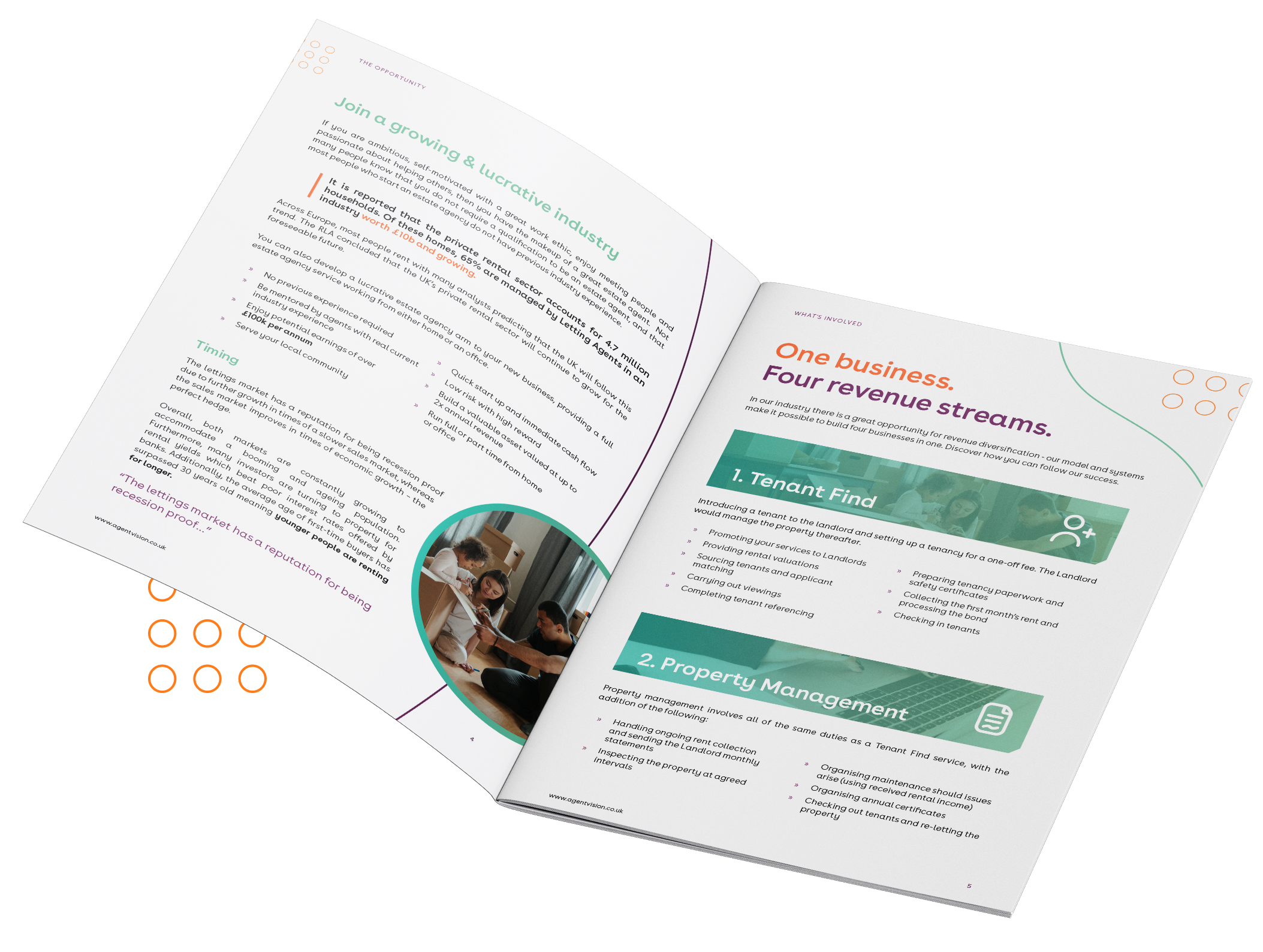Are you interested in becoming a self employed estate agent.
Learn more about how to start and run your own independent letting or estate agency, and what's included in our packages.

There are two routes which most agencies will consider taking when they’re ready to take their agency to the next level.
It firstly needs to be said that both a licence agreement and franchise agreement are almost the same in what permissions they grant. What typically makes the ultimate difference is the level of control your agency is willing to grant, and which legal entity your customers are contracting with. Although recent trends have seen a shift away from conventional franchising, and more towards centrally operated licensed models, the conventional franchising route remains the strongest solution for franchisees who wish to build a valuable asset which one day they can sell as an ongoing concern at a point where they believe their agency has reached its peak value or at which point the owners wish to retire. This is particularly relevant to the lettings side of the business, which carries with it a value of anything between 0.75x and 2x the annual revenue it generates.
Like with a licencing model, your agents will be granted rights to use your brand, however with a franchise, your customers would normally contract directly with your franchisee. This means that their fees will be paid directly to their bank account, and as the franchisor, you’d be responsible for invoicing your franchisees your agreed royalty and fees.
Another key difference would be the whether or not your model provides exclusive marketing territories. To operate a licensing model, where you’d be contracting the groups customers directly, could potentially restrict your ability to offer exclusive territories on the basis that HMRC could construe this arrangement as one which classifies your agency as the employer, leading to an obligation to become responsible for your agents income tax, and the requirement for your agency to pay employer national insurance contributions.
It is important that expert legal advice is taken to assess the precise circumstances under which you wish to operate to ensure that this commercially aligns with your expectations.
Most particularly relevant to growing your lettings portfolio, the idea of growth by acquisition is to essentially seek out letting agencies for sale. This does not necessarily need to be one of the larger and more recognised agencies. This could include:
Lettings portfolios sell for between 0.75x and 2x annual turnover, and the attraction to purchasing a lettings portfolio is that your essentially purchasing turnover which can be absorbed fairly easily by your existing operating platform.
When assessing the value of a lettings portfolio, it’s important to carry out your due diligence. The main areas to review would be as follows:
The average landlord has several properties, and therefore it’s unlikely to find an opportunity to purchase a portfolio with each property belonging to different landlords. Ideally you’d want a well-diversified portfolio.
When reviewing current UK trends it can be found that for:
This would therefore indicate that a well-diversified portfolio would contain approximately 60-70 landlords for every 100 properties being sold.
As a member of Agent Vision, we can offer further consultancy as may be required to assist with helping you to start your own estate agency franchise, assisting you with:
For further guidance, please don’t hesitate to contact a member of our team.
Learn more about how to start and run your own independent letting or estate agency, and what's included in our packages.
